Sugar Talk
Sugar Talk

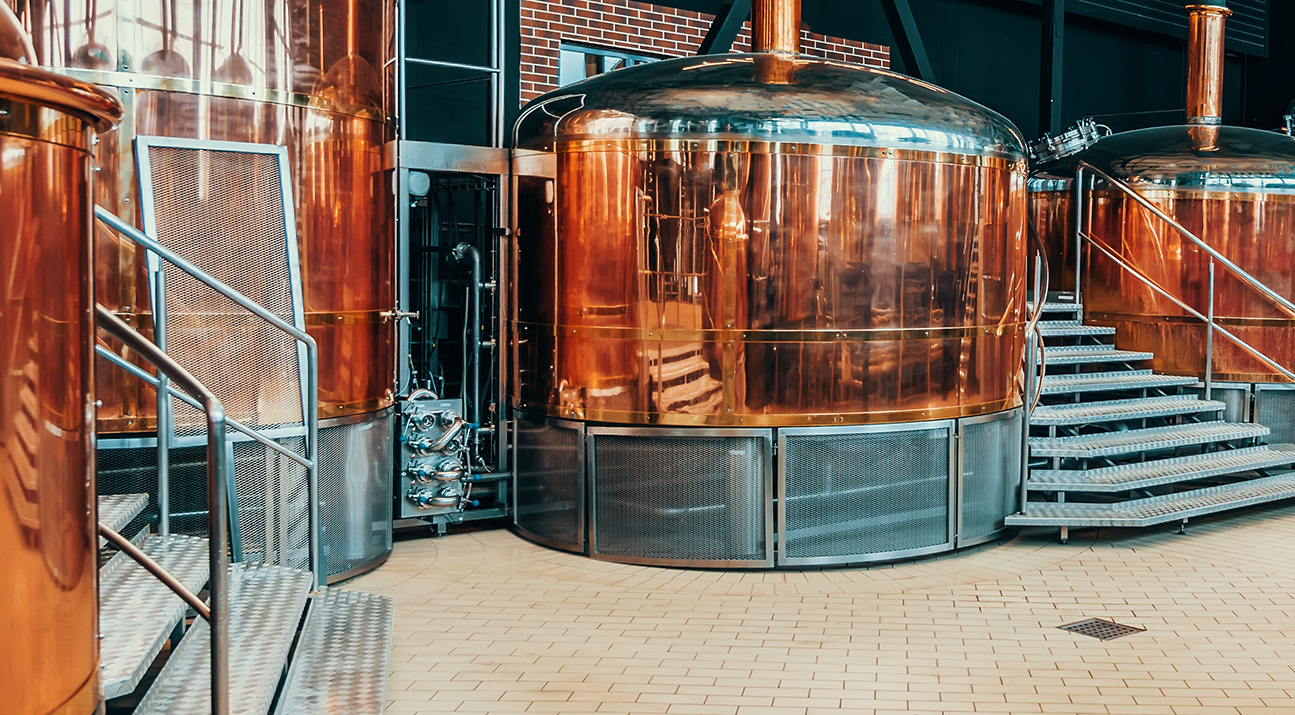
How is invert sugar used in brewing?
Invert sugars are used widely in the alcoholic, low alcohol and no alcohol beverage industry to make beers, ciders and perries. Invert sugars are preferred by industrial brewers as yeast can digest them more efficiently than sucrose and without byproducts that impact on quality. Invert sugars are typically supplied either in block form for craft brewers, or as a syrup for industrial brewers. When blended with other functional ingredients, such as molasses, invert brewing sugars can influence colour and flavour, and lead to a clearer pint.
Sugars used in brewing
Invert sugars for brewing come in two forms. Brewing invert sugar in block form, often called brewer’s block, is typically cast into 25kg solid sugar ingots for craft and traditional brewers. Invert sugar syrup is generally supplied to industrial brewers in 30,000 litre road tankers.
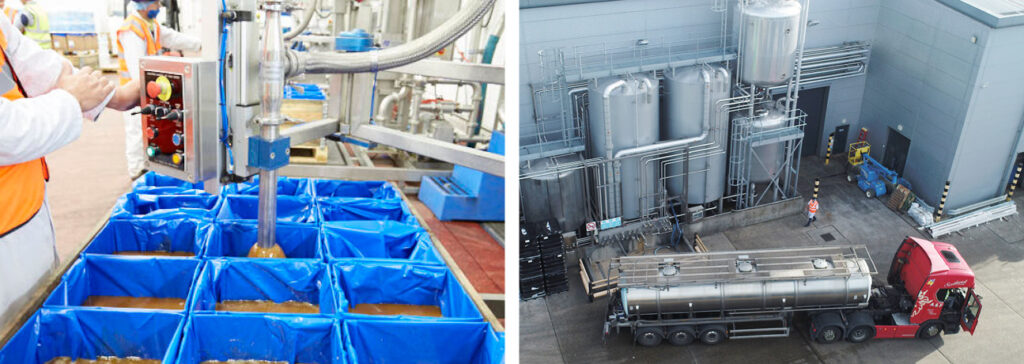
Brewing sugar is made from cane sugar that is fully inverted into a refiner’s syrup with cane molasses, a thick, bittersweet syrup derived from sugarcane. A dextrose seed crystal can also be added to turn the syrup into a solid block form. This is the traditional format of using brewing sugar for craft brewers, and some find it helpful for ease of storage prior to use.
Though other types of commercially available sugar (sucrose) and glucose (dextrose and fructose) can be used to produce beverages like ales and stouts, brewing sugar speeds up the brewing process as it is readily fermentable compared to sucrose. If sucrose is used, the yeast must first breakdown the sugar into its constituent parts before fermentation can begin and the sugars turn into alcohol and carbon dioxide.
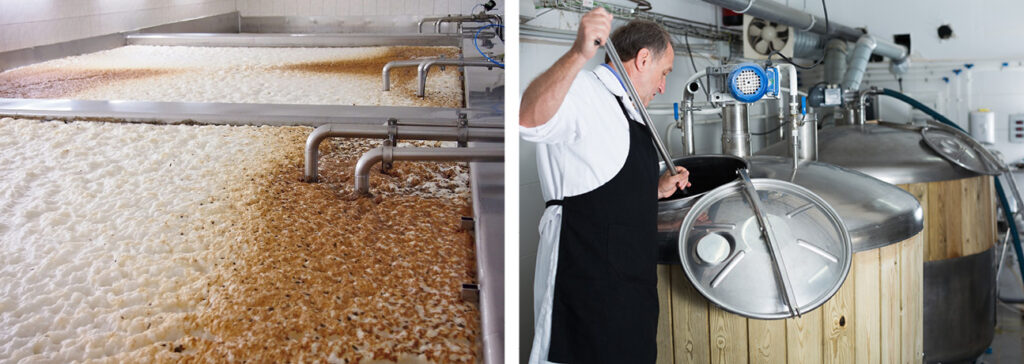
What is invert sugar?
Invert sugars are a liquid syrup comprising varying proportions of water, sucrose, fructose and glucose. They are typically classed as full or partial inverts depending on how much sucrose is present. You can learn how invert sugars are manufactured on our invert sugar syrup product page, which explains how the disaccharide sucrose is broken down into its constituent monosaccharides, glucose and fructose.
The balance of sucrose, glucose and fructose in the syrup also dictates the application. Glucose and fructose have a more intense sweet flavour, so a full invert is up to 40% sweeter than sucrose. A famous partial invert sugar syrup, which has more sucrose than a full invert, is the delicious viscous amber coloured golden syrup.
When providing a syrup, Ragus typically supplies industrial brewers with full inverts, although very rarely golden syrup, a partial invert, is used for speciality beers.
Ragus’ invert sugars for brewing are formulated to meet the specific needs of the brewing industry.
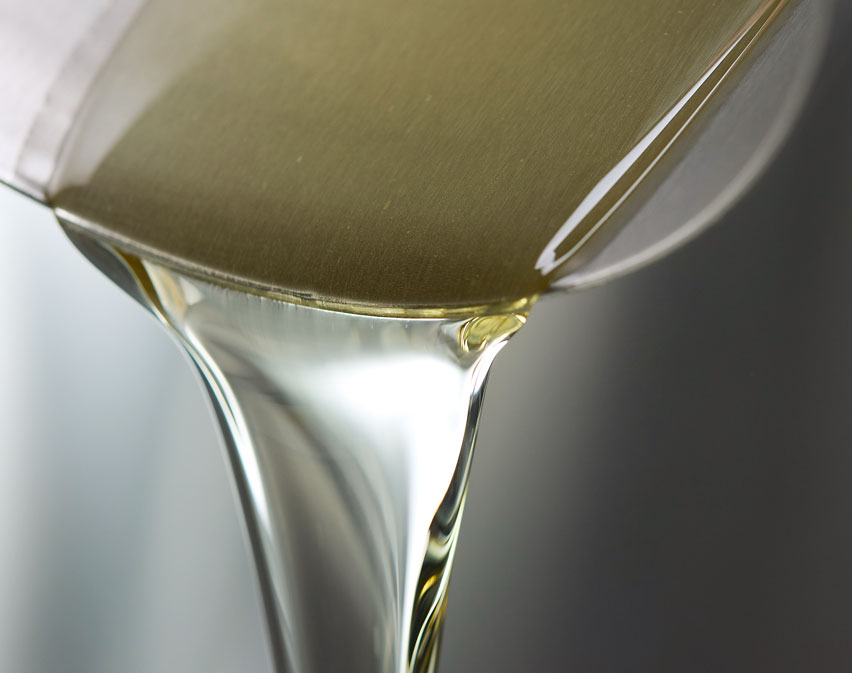
For example, once the invert sugar is manufactured, cane molasses or treacle may be added to the syrup providing additional colour and flavour. The proportion of molasses or treacle will vary according to the final taste, colour and mouthfeel desired by the brewer.
Why use invert sugars for brewing?
The beer industry has evolved so that there are generally two main approaches to brewing: traditional craft brewing, and highly industrialised high-volume brewing. The latter takes supplies of invert sugar syrups used in the fermentation stage via 30,000 litre bulk road tankers. Traditional, heritage and craft brewers still generally use solid ingots of brewer’s block in their brewing process.
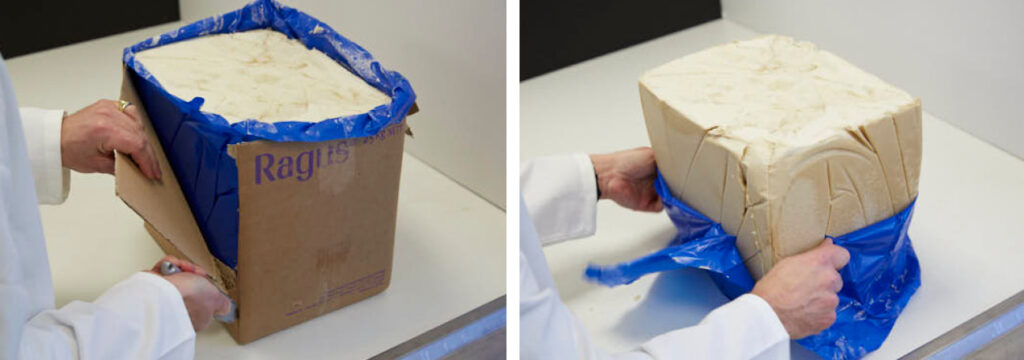
The primary reason for using invert sugars for brewing is not for sweetness, as the ingredient does not sweeten the final brewed beverage. It is as an adjunct to the malted barley used in beer, or apple and pear in cider and perry, to more efficiently aid the fermentation process after initiation, and yeast can more readily digest and transform invert sugars into alcohol.
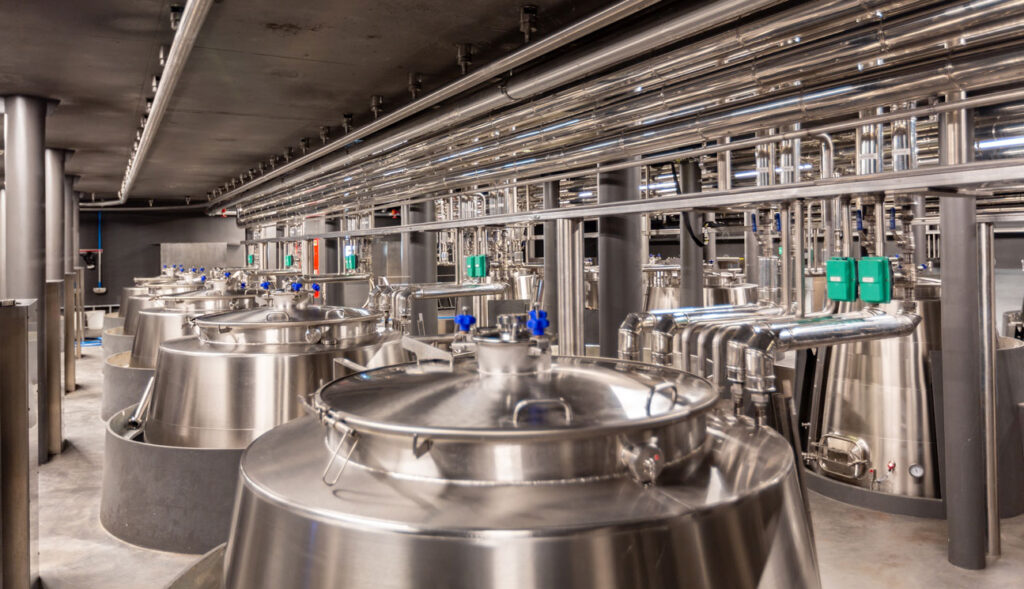
If using sucrose-based liquid sugars to aid fermentation, the yeast must first break down the disaccharide sucrose into its constituent monosaccharides, glucose and fructose. This adds a process step, and the byproducts and impurities of yeast breaking down sucrose into glucose and fructose impact on quality, resulting in a bitter tasting and unappealing looking final product. Full inverts already have a high percentage of fructose and glucose, so the fermentation process becomes both more efficient and does not create the unpleasant byproducts.
Process efficiency and quality are key reasons industrial brewers use invert sugars, but the syrup ingredient has many other functional properties that influence the taste, appearance, and mouthfeel of the final brewed beer, cider and perry.
Invert sugar’s functional properties for brewing
Aids the fermentation process
As highlighted above, inverts are preferred by industrial brewers rather than granulated white sugar because it is more readily and efficiently fermentable, generating alcohol and adding flavour and colour but not sweetness.
Adds flavour and colour without sweetness
Ragus manufactures many different kinds of inverts for brewers that give distinctive tastes, colours and mouthfeels. Lagers and pale ales use a brewing sugar that is amber in colour and mellow in flavour, created by altering the concentration of cane molasses. A similar approach is used for amber-to-ruby ale, which has a higher cane molasses concentration resulting in a brewing sugar that is darker and stronger in flavour.
Mild ales, stouts and porters need an even higher concentration of cane molasses that gives the brewing sugar a dark-brown colour and richer caramel flavour, enhancing the final flavour, texture and mouthfeel of darker, richer, fuller-bodied beverages.

Nitrogen dilutant
Invert sugar syrups are a nitrogen dilutant. If, for example, there is a poor-quality malt harvest, more nitrogen enters the brewing process, which can cause quality issues such as hazing. Adding more invert sugar syrup dilutes the nitrogen, giving a clear pint.
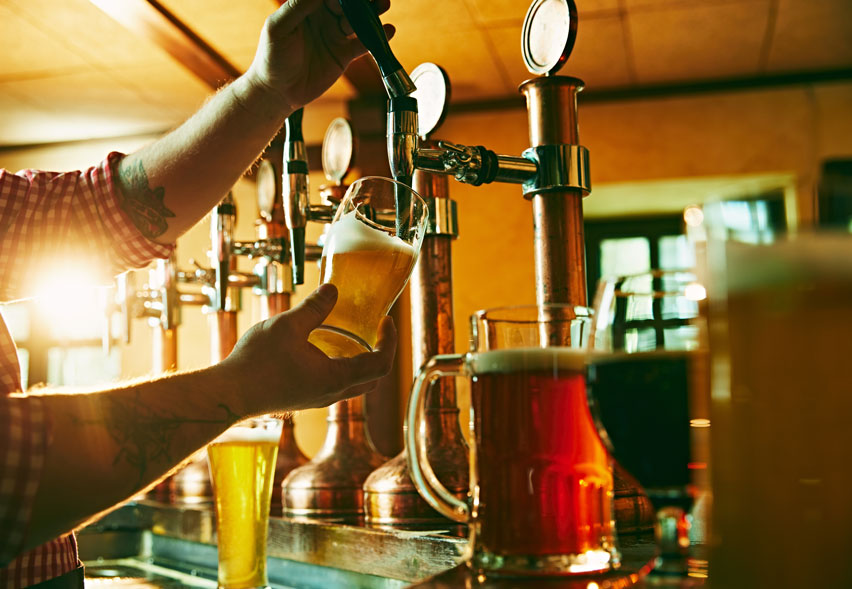
Where can I buy brewing sugar in block form?
When Ragus manufactures and supplies brewing sugar in block form directly to the brewing industry, it is typically supplied in bulk in pallet lots. Our brewing sugars are formulated to meet the specific needs of the brewing industry. For example, if a lighter brewing sugar is required for lagers or pale ales, we alter the concentration of cane molasses to create a brewing sugar that is amber in colour and mellow in flavour. This is ideal for beverages with a European Brewery Convention (EBC) value of 25 to 35.
If an amber-to-ruby ale is being made, we use a higher concentration of cane molasses, so the brewing sugar is darker in colour and stronger in flavour. This is ideal for beverages like amber ales that fall between 60 and 70 on the EBC colour scale.
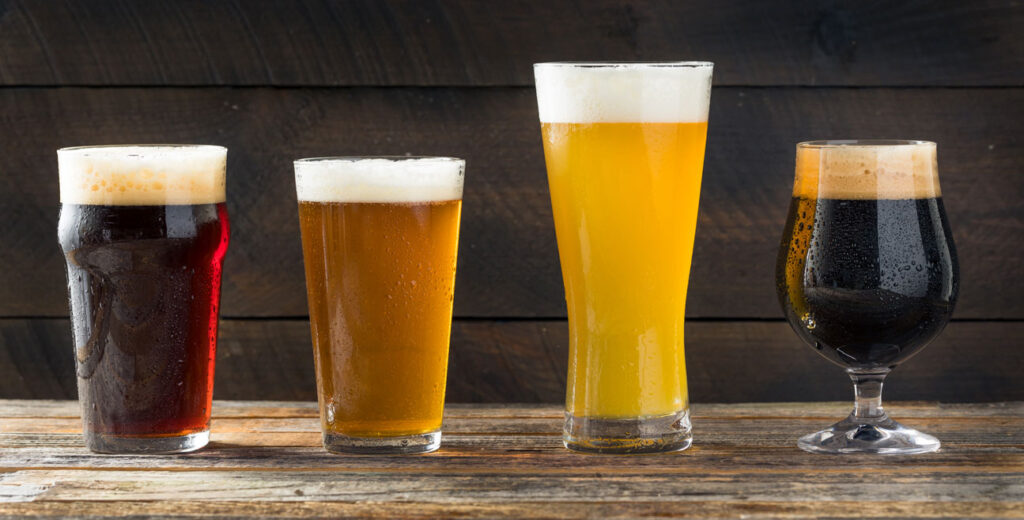
For mild ales, stouts and porters, we increase the concentration of cane molasses further to give the brewing sugar a dark-brown colour and richer caramel flavour – approximately 130 EBC. This helps to enhance the final flavour, texture and mouthfeel of these darker, richer, fuller-bodied beverages.
FAQs
Invert sugar syrup FAQs for brewers
Invert sugar is a mixture of glucose and fructose made by hydrolysing sucrose. This process breaks down sucrose into simpler sugars that are easier to ferment. Learn more about how invert sugar is made and used.
Full invert sugar contains mostly monosaccharides, while partial invert retains some original sucrose. The degree of inversion affects sweetness, fermentation rate and application. Discover how our different invert sugars perform across industries.
Fully inverted sugar is about 40% sweeter than sucrose because fructose has a higher relative sweetness. This means less product can deliver the same taste, although taste is not the primary reason inverts are favoured by brewers. See why Ragus’ invert sugar is valued in many applications.
Invert sugar is ‘pre-digested’ into simpler monosaccharides, so it ferments faster and more completely than sucrose. This boosts efficiency and consistency in brewing by effectively removing a process step.
Not significantly. Invert sugar ferments out almost entirely, contributing alcohol rather than residual sweetness. It supports flavour development without making beer taste sugary.
Because it contains glucose and fructose, invert sugar skips the enzyme conversion step that sucrose requires. This results in quicker fermentation and higher alcohol yields.
Using high-quality invert sugar helps reduce haze, supporting clearer beers, especially in traditional ales. It ferments fully, leaving fewer solids than raw sugar, and invert sugar syrups are nitrogen dilutants that give a clearer pint.
Ragus supplies invert sugar in liquid form, as well as solid blocks such as Brewer’s No.1 to No.4 and Brewer’s Caramel. Each has specific colour and flavour profiles. Contact our Customer Service Team for details.
Brewer’s blocks are solid invert sugars used in traditional British ales and stouts. Each grade adds colour and flavour specific to beer styles. Breweries of all sizes use them—learn more form our Customer Services Team.
Ragus supplies invert syrups in bulk tankers or IBCs, ensuring on time and on-spec delivery and consistent quality. Our supply chain is tailored for industrial scale. Read about our sugar supply chain and delivery options.
Yes. Ragus can formulate invert syrups to specific colour, flavour and solids content to match brewing requirements. Speak to our team to develop custom invert sugar solutions.
Molasses and treacle add deep colour, robust flavour and trace nutrients to brews. They’re ideal for porters, stouts and strong ales. Explore our syrup products to see how they shape beer character.
Invert sugars, and for some beers, golden syrup, are ideal for pale ales and bitters, while inverts blended with cane molasses and black treacle darker grades suit milds, porters and stouts. Each imparts distinct flavours and colours. Learn more about matching our brewing sugars and sugar syrups to beer styles form our Customer Services Team.
Using readily fermentable sugar adjuncts like invert instead of additional malt helps regulate nitrogen levels, as invert sugar syrup is a nitrogen dilutant. This prevents haze and maintains yeast health.
Ragus offers a complete range from No.1 (light) to No.4 (dark), plus Brewer’s Caramel and custom blends. Each is tailored for specific brewing needs. Contact us to learn how you can buy our brewers’ sugars.
Yes. We and our distribution partners supply to craft and traditional brewers, with different pack sizes to suit. Contact us to learn how you can buy our brewers’ sugars.
Absolutely. Our technical experts can develop bespoke invert sugar syrups or blocks to your specification to optimise the brewing process and the flavour, colour and mouthfeel of your final products. Get in touch to start a custom brief.
Ragus manufactures full and partially inverted sugar syrups in bulk for industrial brewers. To learn more, contact our Customer Services Team. For more sugar news and updates, browse SUGARTALK and follow Ragus on LinkedIn.

Ben Eastick
A board member and co-leader of the business, Ben is responsible for our marketing strategy and its execution by the agency team he leads and is the guardian of our corporate brand vision. He also manages key customers and distributors.
In 2005, he took on the role of globally sourcing our ‘speciality sugars’. With his background in laboratory product testing and following three decades of supplier visits, his expertise means we get high quality, consistent and reliable raw materials from ethical sources.


